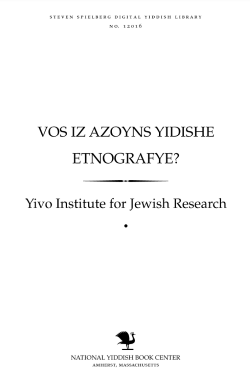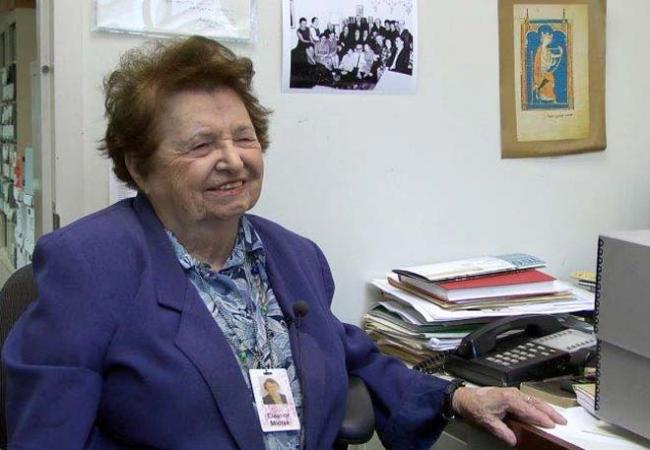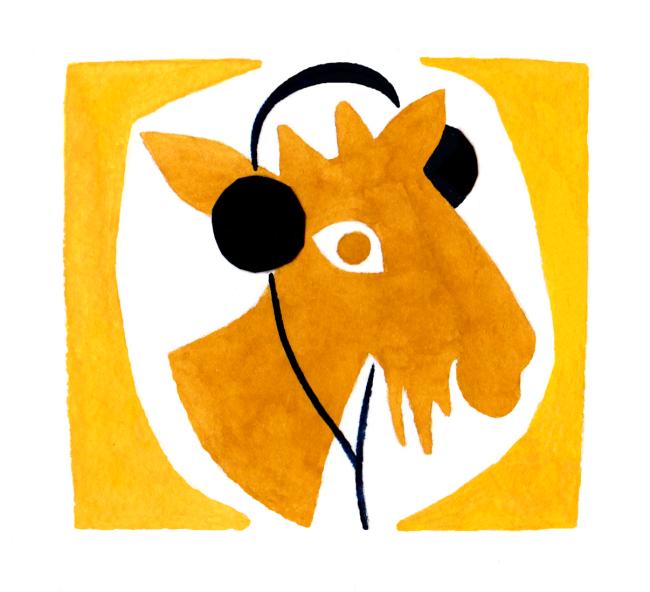Weekly Reader: Yiddish Academia
It’s somewhat of a truism that one of the homes for contemporary Yiddish is the academy. Countless universities have Yiddish language courses; many have advanced courses in Yiddish literature and culture and accomplished Yiddish scholars on their faculties. The fact that Yiddish is taken seriously as an object of academic study isn’t something we should take for granted—it wasn’t always that way. But what about Yiddish not just as the object of study but the language in which it takes place? That was once the dream of scholars like linguists Nokhem Shtif and Max Weinreich, historians Elye Tsherikover and Yankev Leshtshinski, and editor Zalmen Reyzen. In 1925 this group founded the Yidisher Visnshaftlekher Institut (Yiddish Scientific Institute) or, as it’s now known, the YIVO Institute for Jewish Research. Today the dream of a university that operates completely in Yiddish is still waiting to be realized. But it is largely thanks to those scholars that Yiddish receives the academic attention it deserves.
—Ezra Glinter, Senior Staff Writer and Editor
Collectors

When the YIVO began in 1925 its founders knew that in order to analyze Yiddish culture they first had to know more about it—not just from personal experience but in a systematic and organized way. To do that they enlisted the help of zamlers, amateur collectors who gathered materials on Yiddish speech, customs, folklore, and everyday life all over Eastern Europe. To help this network of zamlers, in 1931 the YIVO published a booklet titled What Is Yiddish Ethnography, which gave a crash-course in the subject to volunteers who often had no formal training or education.
Read What Is Yiddish Ethnography in the Steven Spielberg Digital Yiddish Library
American Outpost

The YIVO opened an American section almost as soon as it was founded, and in 1940 the New York branch became its temporary, and eventually permanent, headquarters. As luck would have it, several of the YIVO’s founders had already left Europe and were able to resume their work in the United States. Of all of the YIVO’s new American employees, one of the earliest and longest serving was the folklorist and musicologist Chana Mlotek. In 1944 she became an assistant to Max Weinreich before serving for decades as the organization’s music archivist.
Watch an oral history interview with Chana Mlotek
Listen to a podcast conversation with Aaron Lansky and Chana Mlotek
Southern Sibling
The YIVO was founded in Vilna, but from the outset it had branches and local centers in cities throughout Europe and the world. And while the New York branch became the successor to the original Vilna institute after the Holocaust, not all of the branches simply disappeared. Since its founding in 1928 the Buenos Aires branch of the YIVO—the Fundación IWO Instituto Judio de Investigaciones—has continued to operate parallel to, but independent from, its New York sibling.
Watch an oral history interview with longtime IWO director Abraham (Avrom) Lichtenbaum
Up North

Although the postwar YIVO was based primarily in New York, its work was important to Yiddish-speaking communities throughout the world. In Montreal, the city’s Jewish Public Library held an annual YIVO evening, invariably featuring a prominent Yiddish writer or scholar. This recording captures the YIVO’s fiftieth anniversary celebration, featuring the prolific writer Yekhiel Yeshaye Trunk.
Listen to an evening in honor of the YIVO’s fiftieth anniversary
Disputed Standards

One of the YIVO’s primary goals was the standardization of Yiddish usage and orthography. This project prompted disputes even within the YIVO staff itself, especially when it came to Yudel Mark’s Groyser verterbukh fun der yidisher shprakh (Great Dictionary of the Yiddish Language). Mark felt that his comprehensive dictionary (which was never completed) should be truly comprehensive and include nonstandard words and usages, while Max Weinreich argued that the YIVO had a responsibility to uphold its standards, especially in its own publications. That dispute recently became the subject of an opera by Alex Weiser and Ben Kaplan, themselves current YIVO employees.
Listen to a podcast interview with Alex Weiser and Ben Kaplan
